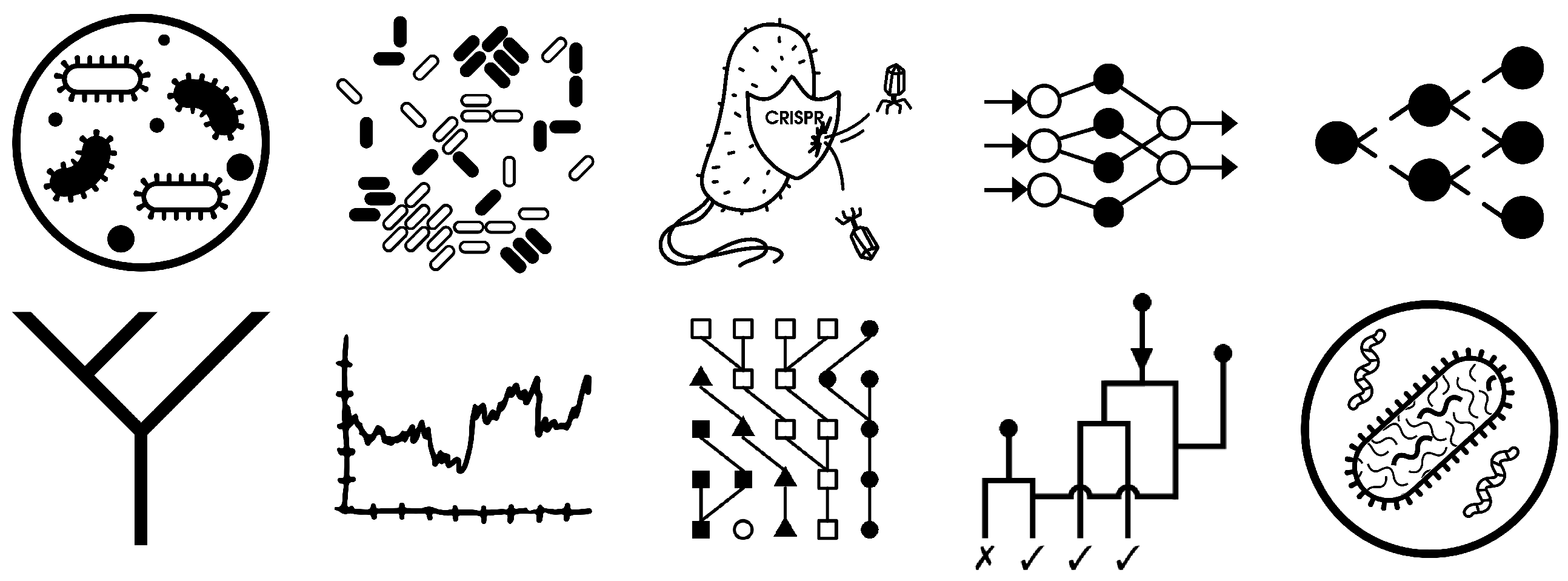The CRISPR-Cas system, the immune system of bacteria against phages, is an interesting model system to answer fundamental questions concerning host-parasite co-evolution.
Most CRISPR-Cas systems possess an array that contains short "spacer" sequences that align with the target sequence. We are interested in the evolution of CRISPR spacer arrays, shaped by spacer insertions and deletions.
Furthermore, there are many different sub-types of CRISPR systems. Some of them are potentially performing functions beyond defense. We use individual-based mathematical models to analyze the fitness costs of different CRISPR systems that can have several reasons, such as imperfect self/non-self distinction or blocking beneficial horizontal gene transfer. Ultimately, we hope to explain the maintenance and spread of CRISPR-Cas systems in prokaryotic populations.

